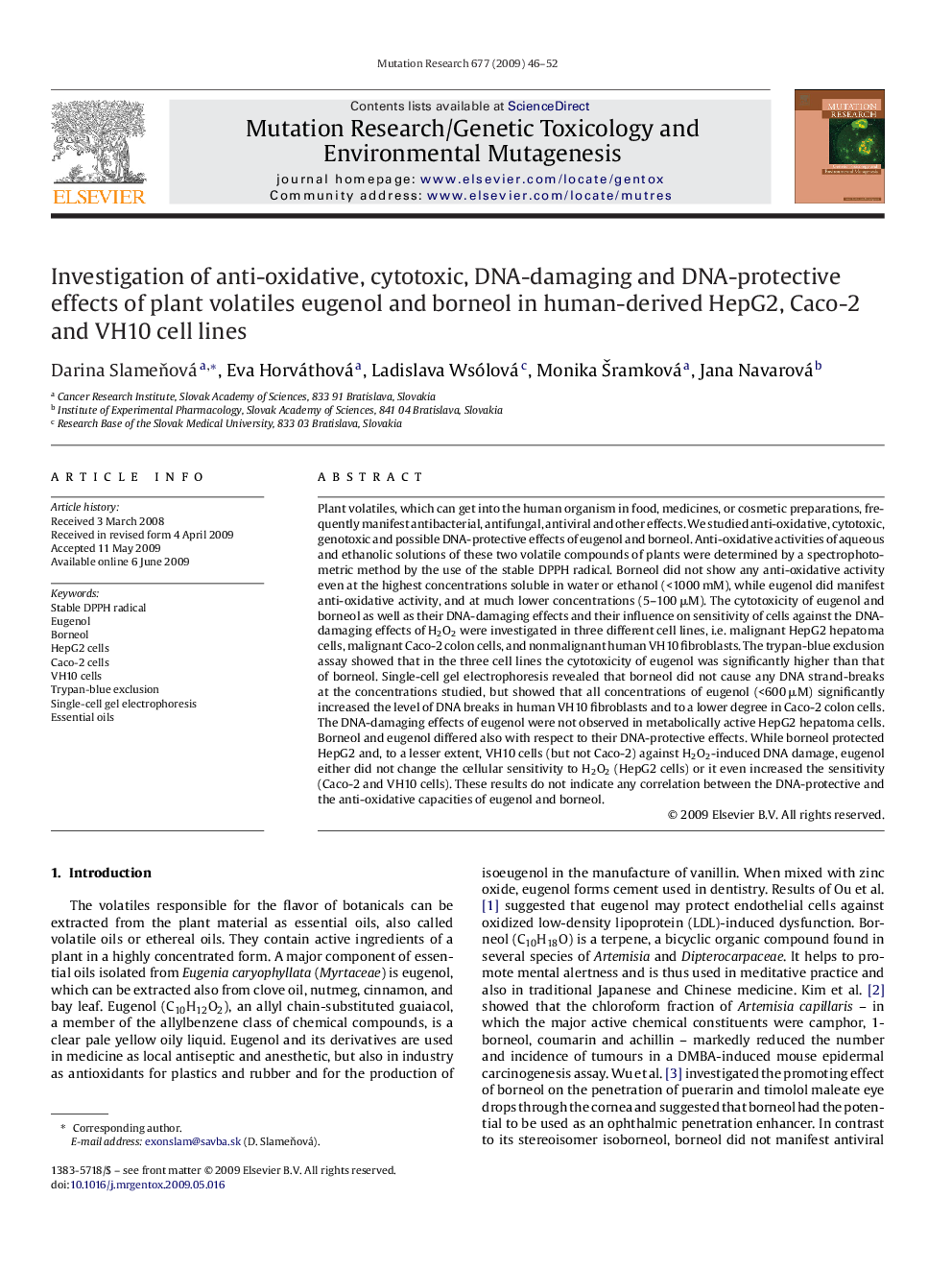| Article ID | Journal | Published Year | Pages | File Type |
|---|---|---|---|---|
| 2148681 | Mutation Research/Genetic Toxicology and Environmental Mutagenesis | 2009 | 7 Pages |
Plant volatiles, which can get into the human organism in food, medicines, or cosmetic preparations, frequently manifest antibacterial, antifungal, antiviral and other effects. We studied anti-oxidative, cytotoxic, genotoxic and possible DNA-protective effects of eugenol and borneol. Anti-oxidative activities of aqueous and ethanolic solutions of these two volatile compounds of plants were determined by a spectrophotometric method by the use of the stable DPPH radical. Borneol did not show any anti-oxidative activity even at the highest concentrations soluble in water or ethanol (<1000 mM), while eugenol did manifest anti-oxidative activity, and at much lower concentrations (5–100 μM). The cytotoxicity of eugenol and borneol as well as their DNA-damaging effects and their influence on sensitivity of cells against the DNA-damaging effects of H2O2 were investigated in three different cell lines, i.e. malignant HepG2 hepatoma cells, malignant Caco-2 colon cells, and nonmalignant human VH10 fibroblasts. The trypan-blue exclusion assay showed that in the three cell lines the cytotoxicity of eugenol was significantly higher than that of borneol. Single-cell gel electrophoresis revealed that borneol did not cause any DNA strand-breaks at the concentrations studied, but showed that all concentrations of eugenol (<600 μM) significantly increased the level of DNA breaks in human VH10 fibroblasts and to a lower degree in Caco-2 colon cells. The DNA-damaging effects of eugenol were not observed in metabolically active HepG2 hepatoma cells. Borneol and eugenol differed also with respect to their DNA-protective effects. While borneol protected HepG2 and, to a lesser extent, VH10 cells (but not Caco-2) against H2O2-induced DNA damage, eugenol either did not change the cellular sensitivity to H2O2 (HepG2 cells) or it even increased the sensitivity (Caco-2 and VH10 cells). These results do not indicate any correlation between the DNA-protective and the anti-oxidative capacities of eugenol and borneol.
